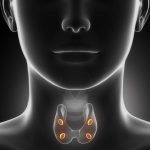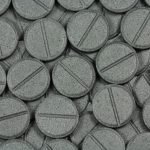Naturopathic Treatment of Crohn’s Disease
Dr. Jen Williamson, ND
Similar to other autoimmune diseases, Crohn disease can be tricky to manage. There are often extraintestinal manifestations, complications linked directly to the gastrointestinal tract, and adverse effects from drugs. However, despite overwhelming statistics, remembering the basic physiology and pathology of the body, as well as many of our basic principles, will help in managing even the toughest case.
Naturopathic management of Crohn disease is important to address the frequency and severity of inflammatory episodes and to prevent future complications such as obstructions, infections, and perforations. Around 70% of patients with Crohn disease need surgery because of these complications.1 The sooner we can connect with and begin treating these patients after diagnosis, the greater will be their chances of not becoming one of the statistics.
To remove the obstacle to cure, we must determine the component that is causing the immune system to attack the gastrointestinal tissues. Diagnostic tests that can help to determine what the obstacles are include food allergy testing and stool analysis with parasitology.
Although it is invaluable to treat each patient individually, when it comes to food sensitivities, most have reactions to cereals, dairy, and yeast.2 In fact, the sensitivity to baker’s yeast (Saccharomyces cerevisiae) is so pronounced in Crohn disease,3 it is used to differentially diagnose ulcerative colitis with the anti–S cerevisiae antibodies test.4 Regardless, studies2,5,6 have shown that removal of food sensitivities extends remission time.
Stool analysis with parasitology will help determine which intestinal microbes are damaging enterocytes. Genetic investigations have found a variation of the NOD2–CARD15 gene in individuals with Crohn disease.7 This gene translates into the patient’s inability to properly detect and defend against invading bacteria, leading to inflammation and a weakened mucosal barrier. Therefore, finding specific bacteria that are out of balance and determining the substances to which they are most sensitive represent a beneficial determination.
The next step is to establish a healthy regimen, which can be difficult because what we recommend for most patients may instigate an acute flare in patients with Crohn disease. During an exacerbation or while modifying the diet, it is important to remember that fiber and vegetables can cause pain and create further irritation to the mucosa. Instead, it is preferable to ease patients into a healthier diet by introducing vegetable juices and soups, which are more easily absorbed.
Also, an elemental diet is one that includes macronutrients in their most basic form such as amino acids, small-chain fatty acids, and simple sugars. An elemental diet is statistically effective at lengthening the time between relapses.8 Therefore, finding a meal replacement drink and adding it to the diet of a patient with Crohn disease can be helpful to maintain adequate nutritional status.
In addition, initiation with a high-dose probiotic can induce gastrointestinal distress. Starting with a lower dose and titrating up represent a more prudent course. A mixed probiotic containing Lactobacillus strains for the small intestine, Bifidobacterium strains for the large intestine,9 and the yeast Saccharomyces boulardii is most beneficial. Saccharomyces boulardii has been shown to cause no adverse effects, lessen symptoms of relapses, and lengthen remission times in patients with Crohn disease.3
Another important factor in establishing a healthy regimen is smoking cessation. Smoking increases disease severity in patients with Crohn disease.10 In addition, patients who have quit smoking need to take fewer immunosuppressive medications.11
Homeopathy and hydrotherapy are excellent modalities to stimulate self-healing mechanisms. As with most chronic conditions, a constitutional homeopathic remedy is the most beneficial in patients with Crohn disease. However, consider the remedies that suppress emotions. These patients are often the types who tend to worry, yet everyone around them thinks that nothing bothers them. Also, they tend to make jokes to cover the pain and embarrassment, or they change the topic to avoid consolation.
With hydrotherapy, a warm compress to the affected area, which is usually the lower right abdomen, is helpful in acute situations. For long-term benefits, constitutional hydrotherapy or wet sheet packs left on until the patient is warm are the most helpful at stimulating the vital force.
To support weakened or damaged systems, we can prescribe nutrients and botanicals. As one would expect, numerous nutritional deficiencies exist in patients with Crohn disease, and a multivitamin or multimineral supplement should be included but may already be a component in the elemental food source. For replenishing, vitamin B12, folic acid, zinc, and the lipid-soluble vitamins D, A, and K are of particular importance. However, remember that vitamin B12 and fat-soluble vitamins are absorbed in the ileum, which is often scarred, inflamed, or surgically removed and is unlikely to get absorbed as well as we would like. When possible, nonenteral supplementation should be used.
Despite our inclinations, fish oil has not been shown to induce or maintain remissions12 except when in an enteric-coated free fatty acid form,13 but it is helpful for alleviating some of the extraintestinal complications such as joint pain.14 Also, glutamine does not seem to be helpful at increasing gastrointestinal integrity or inducing remissions.9,15,16
As with homeopathy, a customized herbal combination for the patient’s specific constitution and symptoms is best. However, herbs that are helpful would include demulcent, astringent, and inflammatory modulating herbs. Adaptogenic and immunomodulatory herbs would be an excellent addition to replenish these organ systems that have been depleted by the disease process and by pharmaceuticals.
Except when early in the disease, spinal manipulation should be performed only after a thorough evaluation of bone and joint integrity. Nutrient deficiencies and chronic corticosteroid use cause osteoporosis, and spinal degeneration from autoimmune arthritis renders these patients poor candidates for this intervention.
Perhaps palliative and not as well studied, dehydroepiandrosterone shows some promise in inducing remission.17 Theoretically, it also may assist in regulating inflammatory and immune processes18 and in mitigating bone loss.19
Despite the severity of Crohn disease, it is important to adhere to the basic tenets of our naturopathic philosophy to effect real change and improvement in these patients. They can and do improve with what may seem simple in comparison with the conventional use of immunomodulators, chemotherapeutics, and biologics.
Dr. Jennifer Williamson, ND is a general practitioner in the Buffalo, New York area since graduating from SCNM in January 2009. She utilizes homeopathy, botanical medicine, therapeutic nutrition, lifestyle modifications, and dietary supplementation in her practice. Since graduating, she has built her practice by following the naturopathic principle of Docere and adherence to the therapeutic order. In addition to seeing clients privately, Dr. Williamson is an adjunct professor at Daemen College, teaching Introduction to Naturopathy and Introduction to Homeopathy in the Complementary and Alternative Therapies program.
References
1. Crohn’s and Colitis Foundation of America. About Crohn’s disease. http://www.ccfa.org/info/about/crohns. Accessed November 13, 2010.
2. Riordan AM, Hunter JO, Cowan RE, et al. Treatment of active Crohn’s disease by exclusion diet: East Anglian multicentre controlled trial. Lancet. 1993;342(8880):1131-1134.
3. Giaffer MH, Clark A, Holdsworth CD. Antibodies to Saccharomyces cerevisiae in patients with Crohn’s disease and their possible pathogenic importance. Gut. 1992;33(8):1071-1075.
4. MD Consult. Crohn’s disease. http://www.mdconsult.com/das/pdxmd/body/224346739-3/0?type=med&eid=9-u1.0-_1_mt_1014784#122916. Accessed November 13, 2010.
5. Rajendran N, Kumar D. Food specific IgG4 -guided exclusion diets improve symptoms in Crohn’s disease: a pilot study [published online ahead of print July 7, 2010]. Colorectal Dis. 2010. doi:10.1111/j.1463-1318.2010.02373.x. Medline:20626437.
6. Bartel G, Weiss I, Turetschek K, et al. Ingested matter affects intestinal lesions in Crohn’s disease. Inflamm Bowel Dis. 2008;14(3):374-382.
7. Vavricka SR, Rogler G. New insights into the pathogenesis of Crohn’s disease: are they relevant for therapeutic options? Swiss Med Wkly. 2009;139(37-38):527-534.
8. Goh J, O’Morain CA. Review article: nutrition and adult inflammatory bowel disease. Aliment Pharmacol Ther. 2003;17(3):307-320.
9. Fyderek K, Strus M, Kowalska-Duplaga K, et al. Mucosal bacterial microflora and mucus layer thickness in adolescents with inflammatory bowel disease. World J Gastroenterol. 2009;15(42):5287-5294.
10. Louis E, Belaiche J, Reenaers C. Do clinical factors help to predict disease course in inflammatory bowel disease? World J Gastroenterol. 2010;16(21):2600-2603.
11. von Roon AC, Reese GE, Orchard TR, Tekkis PP. Crohn’s disease. Clin Evid (Online). 2007;2007:0416. http://www.ncbi.nlm.nih.gov/pmc/articles/PMC2943777/?tool=pubmed. Accessed November 13, 2010.
12. Turner D, Shah PS, Steinhart AH, Zlotkin S, Griffiths AM. Maintenance of remission in inflammatory bowel disease using omega-3 fatty acids (fish oil): a systematic review and meta-analyses [published online ahead of print June 17, 2010]. Inflamm Bowel Dis. 201. doi:10.1002/ibd.21374. Medline:20564531.
13. Belluzzi A, Brignola C, Campieri M, Pera A, Boschi S, Miglioli M. Effect of an enteric-coated fish-oil preparation on relapses in Crohn’s disease. N Engl J Med. 1996;334(24):1557-1560.
14. Brunborg LA, Madland TM, Lind RA, Arslan G, Berstad A, Frøyland L. Effects of short-term oral administration of dietary marine oils in patients with inflammatory bowel disease and joint pain: a pilot study comparing seal oil and cod liver oil. Clin Nutr. 2008;27(4):614-622.
15. Hering NA, Schulzke JD. Therapeutic options to modulate barrier defects in inflammatory bowel disease. Dig Dis. 2009;27(4):450-454.
16. Coëffier M, Marion-Letellier R, Déchelotte P. Potential for amino acids supplementation during inflammatory bowel diseases. Inflamm Bowel Dis. 2010;16(3):518-524.
17. Andus T, Klebl F, Rogler G, Bregenzer N, Schölmerich J, Straub RH. Patients with refractory Crohn’s disease or ulcerative colitis respond to dehydroepiandrosterone: a pilot study. Aliment Pharmacol Ther. 2003;17(3):409-414.
18. Straub RH, Vogl D, Gross V, Lang B, Schölmerich J, Andus T. Association of humoral markers of inflammation and dehydroepiandrosterone sulfate or cortisol serum levels in patients with chronic inflammatory bowel disease. Am J Gastroenterol. 1998;93(11):2197-2202.
19. Szathmári M, Vásárhelyi B, Treszl A, Tulassay T, Tulassay Z. Association of dehydroepiandrosterone sulfate and testosterone deficiency with bone turnover in men with inflammatory bowel disease. Int J Colorectal Dis. 2002;17(2):63-66.
Naturopathic Doctor News and Review | NDNR










